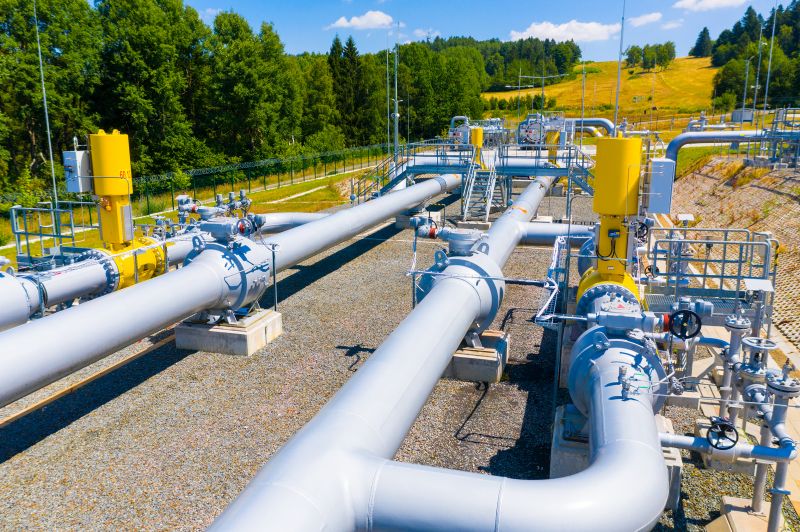Top-Performing Gas Line Service Products for Professional Results
Select from high-quality equipment designed to deliver precise, efficient, and safe gas line servicing outcomes every time.
 In Palm Springs, California, maintaining and repairing gas lines requires specialized tools and equipment designed for safety and efficiency. Gas line service products are essential for professionals and DIY enthusiasts alike, ensuring proper installation, maintenance, and troubleshooting of gas piping systems. These products are engineered to handle the unique demands of gas line work, providing reliable performance and durability. From leak detection to pipe repair and sealing, the right tools can make a significant difference in safety and effectiveness.
In Palm Springs, California, maintaining and repairing gas lines requires specialized tools and equipment designed for safety and efficiency. Gas line service products are essential for professionals and DIY enthusiasts alike, ensuring proper installation, maintenance, and troubleshooting of gas piping systems. These products are engineered to handle the unique demands of gas line work, providing reliable performance and durability. From leak detection to pipe repair and sealing, the right tools can make a significant difference in safety and effectiveness.
Top Overall Option
Multi-Function Gas Line Repair Kit
A comprehensive gas line repair kit offers a versatile collection of tools and accessories suitable for various repair and maintenance tasks. It typically includes pipe wrenches, leak detection solutions, sealing compounds, and fittings, all designed to work together for efficient service. Such kits are favored for their convenience and ability to address multiple needs with a single purchase, making them ideal for both professional technicians and serious DIYers. High-quality kits are built with durable materials to withstand the demands of gas line work and ensure safety during operation.
Types of Products For Gas Line Service
Leak Detection Solutions
Products designed to identify leaks in gas lines, including spray solutions and electronic detectors, help ensure safety and proper functioning.
Pipe Wrenches
Heavy-duty wrenches used for tightening and loosening gas pipe fittings and connections.
Pipe Sealants and Thread Compounds
Specialized sealants and thread compounds prevent leaks and secure fittings during installation or repair.
Gas Line Connectors and Fittings
Various connectors, couplings, and fittings facilitate secure and proper connections in gas piping systems.
Flexible Gas Hoses
Flexible hoses are used to connect appliances to the main gas line, offering ease of installation and adaptability.
Gas Line Snakes and Augers
Tools for clearing obstructions within piping, ensuring unobstructed gas flow.
Pressure Gauges
Devices to measure gas pressure within lines, aiding in diagnostics and safety checks.
Threading and Cutting Tools
Tools used to cut and thread pipes for proper fitting and sealing.
Gas Line Repair Clamps
Clamps designed to temporarily or permanently seal leaks or damaged sections of pipe.
Vacuum Pumps
Equipment for testing and evacuating gas lines to ensure no leaks or blockages.
Gas Line Insulation Materials
Insulation products to protect gas lines from environmental damage and temperature fluctuations.
Portable Gas Leak Detectors
Handheld devices for quick and accurate detection of leaks in various locations.
Gas Line Support Brackets
Mounting hardware to secure pipes and prevent movement or damage.
Pressure Regulators
Devices that control and maintain consistent gas pressure within systems.
Gas Line Test Caps
Caps used to temporarily seal lines during testing or maintenance procedures.
Corrosion Inhibitors
Chemical products that protect gas lines from corrosion and extend their lifespan.
Gas Line Cleaning Tools
Tools designed to remove debris and buildup within piping for optimal flow.
Popular Choices
Widely used for quick visual identification of leaks in gas lines.
A versatile tool favored for its adaptability to different pipe sizes.
Commonly used for sealing threaded pipe connections to prevent leaks.
Popular for connecting appliances safely and efficiently.
Preferred for their accuracy and ease of use in locating leaks.
Convenient for quick repairs on damaged piping sections.
Essential for verifying system integrity and safety.
Useful for clearing obstructions in pipes to restore proper flow.
Often used for testing and evacuating gas lines before repairs.
Frequently chosen for protecting pipes from environmental factors.
Trusted for ensuring secure, leak-proof threaded connections.
Popular for securing pipes and preventing movement.
Commonly used for adjusting and controlling gas pressure at appliances.
Used frequently during system testing and maintenance.
Chosen for protecting pipes from corrosion in exposed environments.
Helpful for removing buildup and debris inside piping.
Gas line servicing involves various tasks such as checking for leaks, tightening fittings, replacing sections of pipe, and ensuring compliance with safety standards. Having access to a comprehensive range of products tailored for these tasks helps streamline the process and minimizes risks. Whether working on residential, commercial, or industrial gas systems, selecting the appropriate tools and accessories is critical. Properly chosen products can also help prevent future issues, saving time and costs in the long run.
Safety is paramount when working with gas lines, which makes the quality and certification of tools a top priority. Products that meet industry standards and are designed specifically for gas line applications help ensure safety and compliance. Investing in versatile, durable, and easy-to-use equipment is advisable for those regularly performing gas line services. Proper training and adherence to safety protocols should accompany the use of these tools to maintain a secure working environment.
Key Buying Considerations
- Compatibility with existing gas line materials and fittings
- Certification and safety standards compliance
- Durability and material quality of tools and accessories
- Ease of use and ergonomic design for safety and efficiency
- Range of product variations to cover different repair needs
- Compatibility with specific gas types (natural gas, propane, etc.)
- Portability and ease of transportation for field work
- Availability of replacement parts and accessories
- Environmental conditions where the tools will be used (indoor/outdoor)
- Brand reputation and customer reviews for reliability
- Price point relative to the scope of work and quality
- Ease of maintenance and cleaning of tools
- Warranty and customer support options
- Compatibility with testing and diagnostic equipment
- Availability of training or instructional resources for proper use
